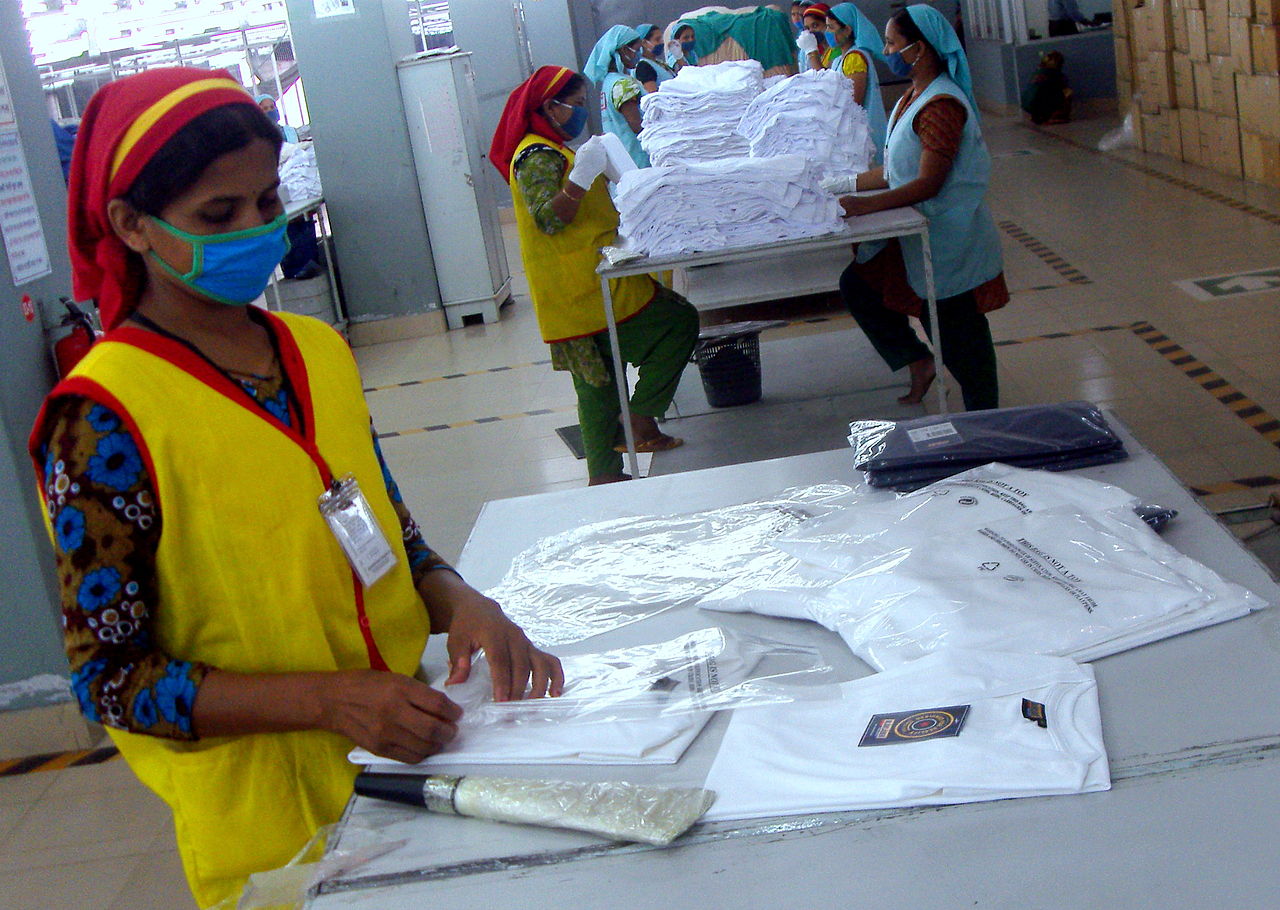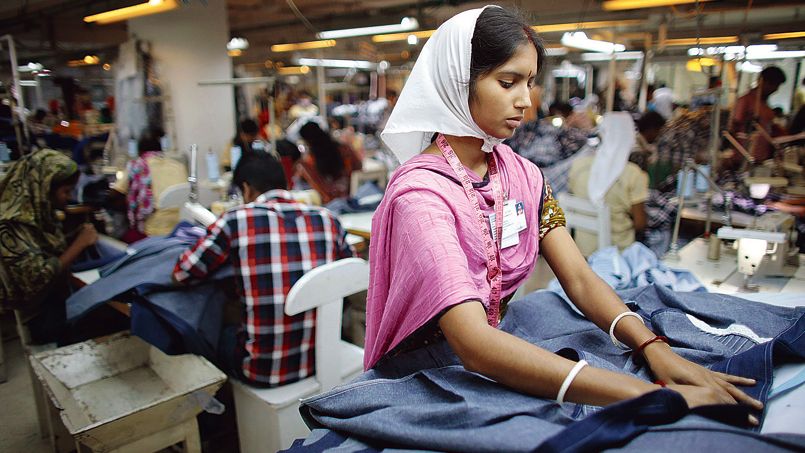Bangladesh like many countries across the world is undergoing a nationwide lockdown in the wake of the coronavirus pandemic but according to recent reports, thousands of textile workers in the country have returned back to work despite the lockdown.
This return of the workers urging for resumption of work in the textile industries across the country has authorities worried about the possibility of uncontrollable spread of the virus and contagion.
Factories in cities such as Dhaka and Chittagong reopened on Monday after the government made it possible for them to start operating amidst the lockdown. The country’s textile and garment factories had been shut in late March but due to the immense pressure give by textile retailers to fulfil pending export orders, many were compelled to resume work urgently despite a nationwide lockdown which was placed on May 5. More than 1,000 factories have opened in the country all belonging to the textile sector. The garment making industry composes over 80% of the South Asian country’s national annual exports and the country will most likely lose the export revenue of about $6bn this financial year as the sector has been adversely affected by cancellations from the biggest global brands and retailers across the world.
Garment Workers Find Themselves in Financial Crisis Amid Fears of Coronavirus

The garment industry employees a large number of people in Bangladesh and the workers are in a particularly strange stage at the moment. They are afraid of the prospects of catching the virus and losing their lives if they go to work but they are also aware that if they don’t join, they will be eventually laid off. In the absence of social security nets and financial aid, their meagre salaries are the only source of survival and they certainly cannot afford to let go off it for such a long duration of time. Thus it wouldn’t be an exaggeration to say that a greater and more compelling fear for the workers is hunger and starvation than the coronavirus itself. However the government’s concerns are more centred on the health dangers of allowing workers to return back to work. It fears that gathering of a large number of workers in industries and factories could lead to an explosion of COVID-19 cases.
Bangladeshi Textile Industry Workers Make Clothes for Big Brands Like H&M and Walmart But What About Their Starvation?
Bangladesh has a blooming textile industry and it employees more than 4 billion people. There are thousands of factories in the country and they successfully produce clothes and textiles for big International brands like Walmart, H&M and Inditex. Last year Bangladesh shipped apparel worth $35bn to some of the world’s leading retailers.
The lockdown has brought forward serious challenges for workers in the textile industry of Bangladesh and to address the loss, the government announced a $588M package to aid the crucial export oriented sector so that it could pay its workers. But garment manufacturing units and activists working for the rights of textile workers both argue that the funds were inadequate to mitigate this crisis.
Workers Take to the Streets of Dhaka Demanding Lost Wages
On Sunday, workers across Bangladesh couldn’t resist coming out onto the streets and demanding their wages. The large gathering of these workers on the streets of Dhaka clearly led to the flouting of social distancing norms amid the lockdown.
The country has also been seeing several small scale protests by migrant workers demanding lost wages amidst the lockdown. Many workers in the country are on the verge of starvation because they haven’t received their basic wages in months. The workers have threatened to continue with their protests and violate the ban on public movement if their demands aren’t fulfilled. The country has planned to continue its nationwide lockdown till May 5. The Bangladesh government has resorted to taking the help of police force to enforce the countrywide shutdown and discourage people from engaging in gatherings and protests.














